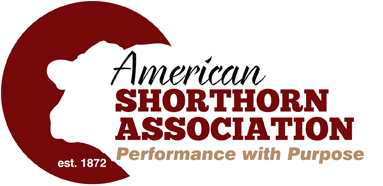I want to thank all the breeders who have reached out to me or other board members with questions or thoughts on the new ASA rule regarding DNA testing for bulls, that goes into effect in January. As Board members, it’s important that we hear from breeders and stay abreast of their questions and concerns.
The new testing rule came about after we learned that, across a number of breeds that do DNA testing, there are a significant and increasing number of cattle that are registered that do not match their listed parentage. These errors are often unintentional (the wrong semen was used, the calf was born between the AI date and the turn out date, etc), but nevertheless the registration is incorrect. This is not just a Shorthorn problem, it is one many breeds face, and a number of breed associations are taking similar steps to address the issue.
Ultimately the goal is to help assure that an individual animal’s pedigree is accurate and breeders can be confident in the genetic background of an animal they use in their breeding program.
In developing the rule, we looked at what other breeds are doing or considering and what would be reasonable for the majority of our breeders. After looking at the options, the Board felt that requiring testing for Shorthorn bulls that would be used to produce pedigreed Shorthorns and Shorthorn Plus would be the fairest approach. This approach would allow breeders to continue to register all bull calves and would have a minimal impact on the majority of commercial bull sales.
In the long term, the Board felt this approach would begin to address the issue of inaccurate registration and provide greater assurance to purebred breeders that the genetics they select to add to their herds are “as advertised”. Couple this with an increased demand, across all sectors of the beef industry, for increased genetic information, and we felt this was a reasonable solution. As breeders wondering about the impact on their own program, a few things to keep in mind.
DNA testing is NOT required to register a calf. Only those bulls, born in 2022 or after, that will be used to sire registered cattle will need to be tested.Bulls can be tested at any time, and their status adjusted. So a bull sold to a commercial herd that turns out to be a superior sire, can be tested as a mature bull and then used to sire pedigreed offspring. Parental verification can be done as a separate genetic test or included in most of the current DNA tests, allowing breeders flexibility in the costs associated with the testing.
While it will always be a challenge to be error free in our respective programs, the intent of the Board is to assure the accuracy and integrity of your breeding decisions, helping maintain the value of your cattle for both you and your customers.
Joe Bales, ASA Board President





![[ Random Image ]](/wp-content/themes/shorthorn/headers/header14.jpg)